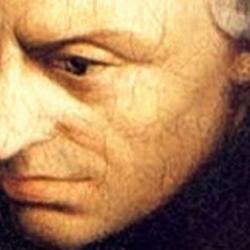“Beyond the visual paradigm” was the challenge issued by the organizers of the symposium that eventually produced the volume Synaesthesia and the Ancient Senses, edited by Shane Butler and Alex Purves. In place of a visual paradigm, they wanted to offer a “synaesthetic reading of the ancient world” (2).
The contributions to the volume led to two large conclusions: First, there is “a remarkable body of ancient material that regularly crosses sensory lines and blurs any single, simple ‘opticentric’ focus”; second, the limits of classical scholarship, they concluded, has less to do with an optical focus and more to do with notions of reading. The “visual paradigm” is a theory of reading that assumes “a reader who reads in order to know.” The editors propose to examine “the reader who reads not just to make sense but also in order to sense” (2-3).
The range of essays is remarkable: Homer on the number of muses and the “plurality” of aesthetic experience; the role of touch in Herodotus; animal sounds in Aristophanies and other comedians; smell in ancient drama; the role of synaesthetic experience in Plato’s account of the experience of Beauty; later treatments of classical treatments of synaesthesia.
Contributors find synaesthesia in unexpected places. Mark Bradley that the famous Homeric “wine dark sea” referred “to abstract concepts of ‘wine-dark,’ ‘frenzied’ or ‘Dionysiac,’ and the category’s more direct associations with the properties of wine (not just its visual appearance, but also its taste, smell, effects and dangers) contribute a great deal more to the semantics of the lines in which this colour is used than a straightforwardly chromatic interpretation. Achilles is intoxicated with grief and revenge; Odysseus is shipwrecked in waters that are as deep, intense, and treacherous as wine.” “Wine” was not just a color term but “appealed to the object as much as what it looked like” (132-3).
And when the synaesthesia is obvious – as in the moment in Knights when the Council suddenly “looked mustard” – the contributor (Ashley Clements) takes the phrase not as as a poetic device designed to shock but as a pointer to the Greek sense that vision and taste were integrated.
Synaesthesia and the Ancient Senses is the first of a planned six-volume collection, so there’s lots more of this multi-sensory feast to come.











